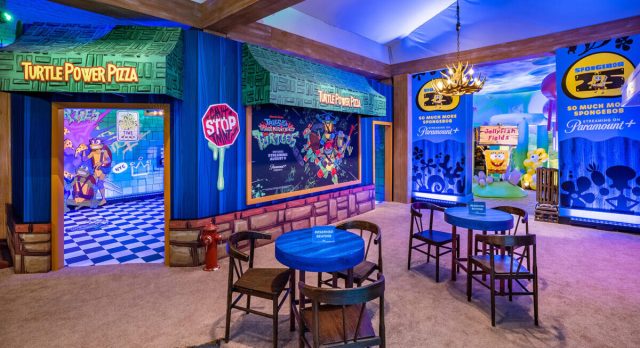The Business of Being Kevin Smith
Drive business and brand growth with winning media strategies at Mediaweek. Hear from experts at TIME, Peloton, YouTube, Google and more, October 29-30 in New York City. Register.
Kevin Smith is supposed to be here today.
Three decades after his scruffy feature film debut, Clerks, made him a literal poster child for Generation X slackers, the born-and-bred Jersey boy oversees a vibrant direct-to-consumer business that encompasses merchandise, live events, CBD (cannabidiol) products, comic books, podcasts, vodcasts, and … oh yeah, even the occasional movie.
The former convenience store register jockey’s 16th film, The 4:30 Movie, opens in theaters Sept. 13—a mere month removed from the 30th anniversary of Clerks’ Oct. 19, 1994, theatrical premiere.
These days, “Kevin Smith” is a fan-facing, DTC brand, and business that spans both coasts and keeps upwards of 100 longtime staffers gainfully employed.
“We’ve had folks who have sent their kids to college based on enough people wanting to buy a plastic Jay and Silent Bob tchotchke,” Smith marvels, referring to his (mostly) mute onscreen alter ego and the character’s hyperactive heterosexual life partner, played by real-life friend Jason Mewes.
Nurturing that kind of enterprise for 30 weeks—let alone 30 years—requires a business acumen that’s not necessarily associated with the stoners, schemers, and superhero stans that inhabit Smith’s sprawling cinematic universe, affectionately known as the “View Askewniverse” after his View Askew production company.
But during the course of a typically ribald and revealing interview, the filmmaker allows ADWEEK a closer look at “Business Kev,” the side of his personality that keeps all of those various balls in the air. (Die-hard Smith fans can insert their own dick jokes here.)
Business Kev rarely makes his presence known in public, and, in fact, even some of Smith’s closest friends and family members have only had chance encounters with him over the years.
“I was with my mom recently, and I told her I had to take a quick call,” Smith recalls. “When I got off the phone, she was like, ‘You are completely different when you’re on the phone talking about your business. It’s the first time that you’ve ever sounded like a grown-up to me.’”
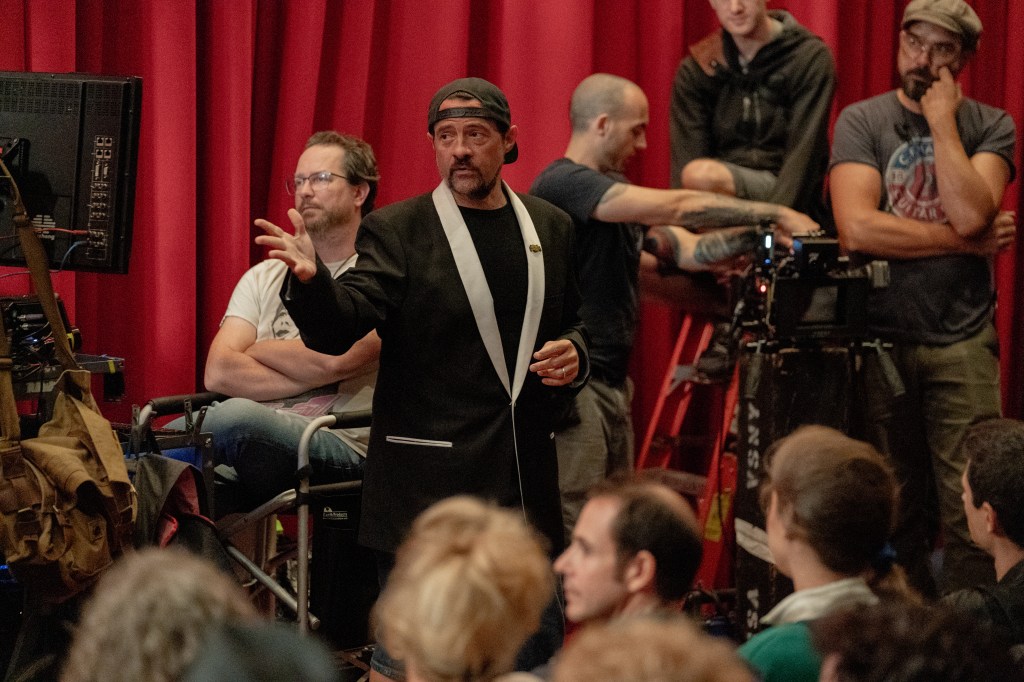
Smith Wars: Episode 1—The Phantom Brand
Every brand has a first step, and the secret origin of Smith’s empire began in the mid 1990s, when the filmmaker harnessed the nascent power of the internet to communicate directly with his growing fanbase. Enlisting the aid of one such superfan, a University of Michigan student named Ming Chen, he established an official View Askew website that featured a message board where Smith could respond to viewer queries.
“That changed everything,” Smith says. “Suddenly, I was never alone again. I could head over to the website and talk to the people who bought tickets to my movies.”
Around the same time, the director dove into the college speaking circuit, screening Clerks and its follow-up, Mallrats, for eager audiences and then sticking around into the late-night hours sharing true Hollywood stories. “I went to any college that asked me,” he says, laughing.
But there was one thing Smith neglected to ask for in exchange for making himself so available to his online and IRL (in real life) fans: money.
In the middle of a three-hour-plus appearance at Rutgers University, a student activities committee representative clued him into that lucrative revenue stream. “She told me, ‘Everyone knows that you come cheap to free,’” Smith remembers. “And I was like, ‘Not anymore!’”
Signing with the now-closed college booking agency Auburn Moon, Smith’s appearance fee immediately went from free to five digits. Meanwhile, he and Chen figured out how to monetize the View Askew website by selling merchandise directly to eager buyers, starting with 200 leftover Mallrats posters that the movie’s distributor planned to junk.
“They started selling like crazy,” Smith says. “Suddenly, I realized, ‘I’m not just a filmmaker—I’m in sales again.’”
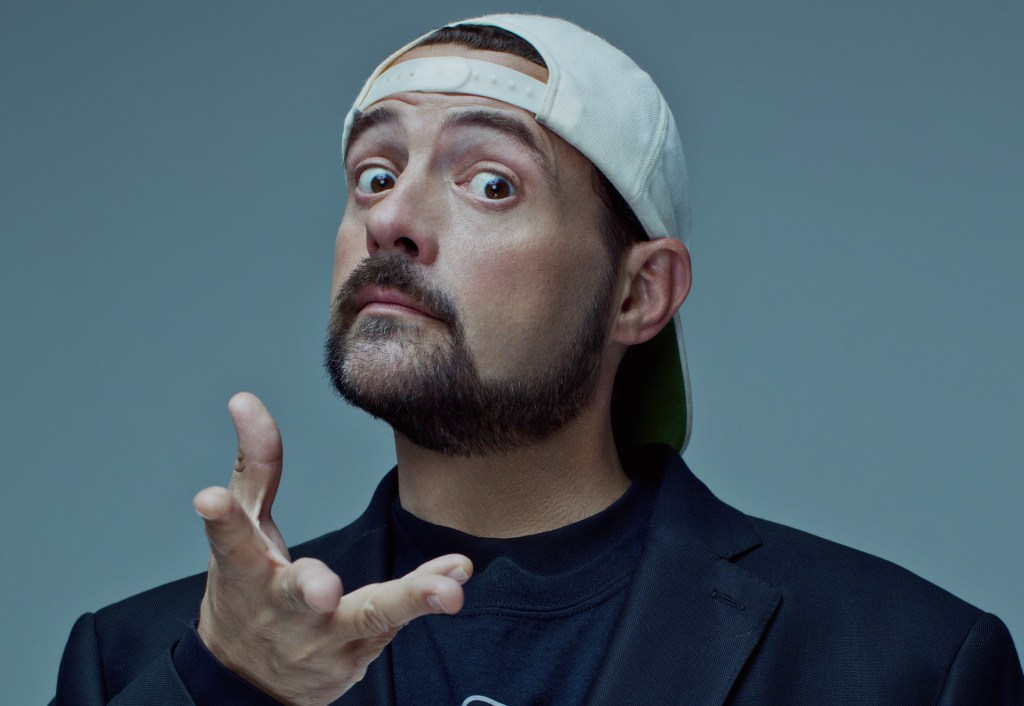
Chasing DTC
Smith continued to grow the sales side of his brand over the next decade. In addition to his digital retail operation, he added a pair of brick-and-mortar Jay and Silent Bob’s Secret Stash storefronts—one in New Jersey and one in Los Angeles—that sold View Askew-related ephemera, as well as all of the usual fan merchandise, from comic books to toys. And as his raucous question-and-answer sessions graduated from the college circuit to bigger venues, he took advantage of the boom time for physical media by making high-quality DVD recordings available to the fans who couldn’t purchase tickets.
Smith’s gift for gab also made him a natural pioneer for the emerging world of podcasts. In 2007, he and his former producing partner, Scott Mosier, launched a weekly SModcast, serving his dedicated fanbase more fresh content that, once again, didn’t initially come with a price tag. “I put them up for free, but never realized how much it cost me until I got the server bill,” he jokes.
That’s when Smith tossed the keys to Business Kev, who turned those audio-only bull sessions into its own live touring attraction. Sponsors were eventually recruited to bring advertising dollars to SModcast and the host of other Smith-backed podcasts that debuted with the 2010 launch of the SModcast Podcast Network, which is still casting and now streaming on the internet and YouTube nearly 15 years later.
Smith says his DTC ventures kept him active and earning as his cinematic fortunes waxed and waned in the mid-2000s with commercial disappointments like Jersey Girl and Cop Out.
“The brand has buoyed a career that should have been over a long time ago,” he admits candidly. “There are a bunch of filmmakers I started with that don’t make movies anymore.”
In fact, Smith assumed that his own directing career was finished after 2011’s Red State, a return to his low-budget indie roots that he self-distributed via a cross-country roadshow tour.
“I was like, ‘I’m done making films,’” he says, adding that he assumed his fanbase would scatter elsewhere.
Instead, his core audience didn’t just remain intact—it grew, as the Clerks generation started bringing their own kids to Smith-hosted screenings of his ‘90s movies. His self-described “nostalgia guy” status made it possible for him to keep on making films for his fans that also feed his various other business pipelines.
“The refrain I’ve heard time and time again from financiers is, ‘Well, he’s got that audience,’” Smith says. “They’ve always been there for me because I’ve always been there for them.”
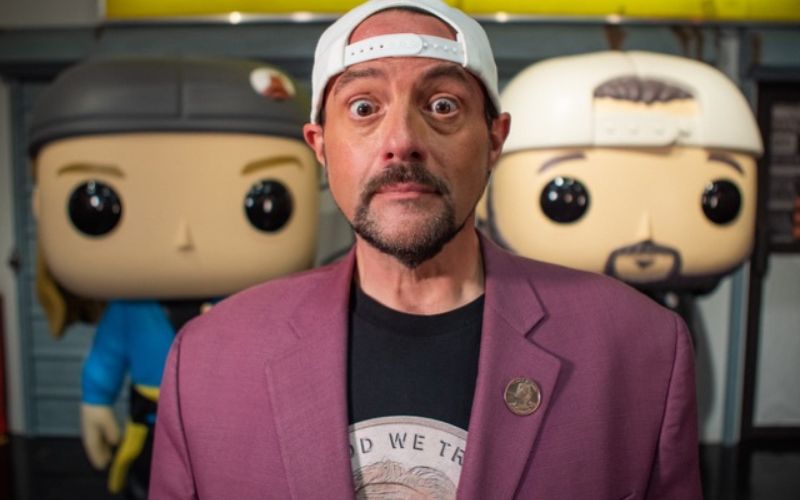
Mistakes, he’s made a few
Failure can follow success as Silent Bob follows Jay, and Business Kev owns up to a few of his missteps over the years. In 2010, he lowered the drawbridge on the SModcastle, a 50-seat L.A. theater intended as a live space for his panoply of podcasts, as well as other events. But Smith soon discovered the downside of being the face of the brand when it comes to real estate.
“If I was doing a show, it would sell out,” he says. But the Smith-free podcasts didn’t have the same draw, and nights where the theater was dark put additional strains on the budget. “The economics of it didn’t really make sense,” Smith admits.
The L.A. SModcastle closed its doors in 2011.
Then, 10 years later, Smith opened a New Jersey-based SModcastle right by the Quick Stop convenience store that he immortalized in Clerks. But that room also struggled when the director wasn’t in the house and soon shut its doors. “I realized it would be good to have some other reason for people to go there,” Smith notes.
He’s currently testing that theory with his third swing at a live event space. In 2022, Smith purchased his childhood movie theater in Atlantic Highlands, N.J., and reopened it as SModcastle Cinemas. The director makes regular trips back east to host events at the five-screen theater, but when he’s occupied elsewhere, those screens play the latest Hollywood releases. Not for nothing, but SModcastle Cinemas is also the central location of The 4:30 Movie, allowing Smith to essentially advertise his movie theater to audiences.
It’s a smart business movie, but also a necessary one. Smith is open about the difficult economics facing the exhibition business and acknowledges the struggles of keeping the lights on at SModcastle Cinemas. (The theater received nonprofit status earlier this year.)
“I have to do some kind of event every month that pulls in $20,000 to $30,000 to take care of the bills,” he says. “It hasn’t been as easy as we thought it would be.”
And then there’s the physical and psychological toll that comes with being the public face of a DTC business. Last year, Smith went public about seeking professional treatment after a mental breakdown.
“I thought I was so smart—I turned myself into my job,” he confesses. “But if you are yourself for a living, you’re also never off. After my breakdown, I had to make some changes. I’m still the brand, but I’m more understanding about who is at the wheel in any given moment.”
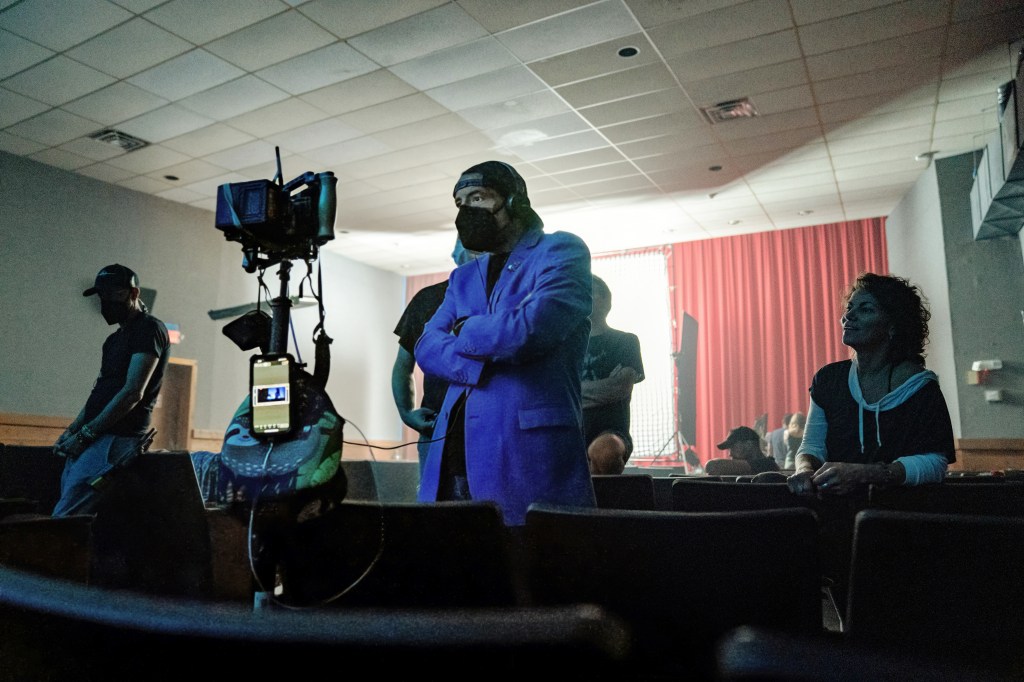
Business Kev rebooted
When it’s Business Kev’s turn at the wheel now, he’s focused on finding fresh pivot points for the Kevin Smith brand that still put the fans first. In February, the lifelong landlubber partnered with events company Sixthman to launch Cruise Askew on the high seas, featuring screenings, panels, and meet-and-greets. Bookings were plentiful enough that Smith not only got over his Jaws-inspired hatred of the ocean, but also announced a return voyage set for 2026.
That’s just the latest example of how Smith’s built-in fanbase keeps him solvent in brand partnerships, as well as film financing. Funko, Geeky Jerseys, and The Hundreds are some of the companies he’s currently working with, although he admits that his penchant for “weed and dick jokes” keeps bigger companies like Disney at bay.
But he’s also proud of doubling down on the power of fandom before the Mouse House did. “Now we’re seeing the studios get deeply engaged in online fan communities with fan-first events and specific merchandise. They always could have done what we’ve done, and now they’re waking up to it.”
Three decades into his career, Smith’s own enthusiasm for engaging with fandom isn’t showing any sign of flagging.
“I started out wanting to talk to fans, and that has sustained me and the people I’ve employed for 30 years,” he says. “That has everything to do with the idea of the brand being a thing that keeps evolving. As long as you keep adding another link to the chain and another chapter to the story, the audience stays invested.”
https://www.adweek.com/convergent-tv/kevin-smith-business-empire/
